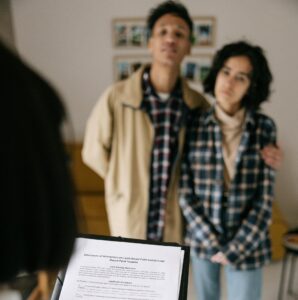As a property owner or manager in British Columbia, understanding when a guest becomes a tenant is crucial to maintaining clear and lawful rental agreements.
Tenants have legal rights and responsibilities that guests do not.
Knowing when a guest has transitioned to a tenant can help prevent disputes, property damage, and keep you in compliance with the Residential Tenancy Act of BC.
When Does a Guest Become a Tenant?
In British Columbia, a guest becomes a tenant when they start to show signs that they are living in the rental unit as their primary residence.
Some factors that might indicate signs of tenancy include:
- Regular Overnight Stays: If a guest starts staying overnight consistently, they may be considered a tenant. Occasional visits are typical, but regular overnight stays can signify a more permanent living situation.
- Receiving Mail: When a guest begins to receive mail at the rental property, it’s a strong indicator that they consider the property their primary residence.
- Paying Rent or Utilities: If a guest starts contributing to rent or utility payments, they are taking on tenant responsibilities and should be recognized as lawful tenants.
- Moving in Personal Belongings: The presence of a guest’s personal belongings, such as furniture, clothing, or pets, can indicate that they are settling in as a tenant.
- Having a Key: Providing a guest with a key to the property suggests a level of permanency typical of a tenant.
If a guest starts doing any of these 5 things, the landlord might consider them an occupant, and the tenant should inform the landlord to avoid potential disputes.
Tenant Responsibilities for Long-term Guests
Tenants should always inform their landlord if they have a long-term guest. Transparency helps avoid misunderstandings and ensures that all parties are aware of the living arrangements.
If a guest has effectively become a tenant, you should update the rental agreement to ensure that all legal rights and responsibilities are clearly defined.
Landlord Limitations on Guest Visits
When it comes to guests, it’s important for landlords to know their limitations.
In British Columbia, there are specific rules that protect tenants’ rights to have visitors without unreasonable interference from landlords.
- No Limits on Number of Guest Visits per Year: In BC, tenants are allowed to have guests visit their rental unit without any restrictions on the number of visits per year. BC landlords cannot set arbitrary limits on how often a tenant can have guests over.
- Unreasonable Restrictions Are Not Allowed: Setting limits on guest visits is generally considered unreasonable in British Columbia. The Residential Tenancy Branch emphasizes that tenants have the right to enjoy their rental unit and entertain guests as they see fit — as long as it does not cause undue disturbance or excessive damage.
- No Fees or Check-In Policies: Landlords cannot charge additional fees for guests or require guests to check in or register. Such policies would infringe upon a tenant’s right to reasonable privacy and freedom within their home.

Wrapping Up
Understanding when a guest becomes a tenant is key to maintaining harmony and legality in rental relationships.
By being proactive and informed, you can avoid potential disputes and ensure your properties are well-managed.
For more information or assistance, contact Vantage West Realty’s Property Management team, experts in managing Kelowna houses and apartments for rent.
We’re here to help you navigate the complexities of property management with ease.
